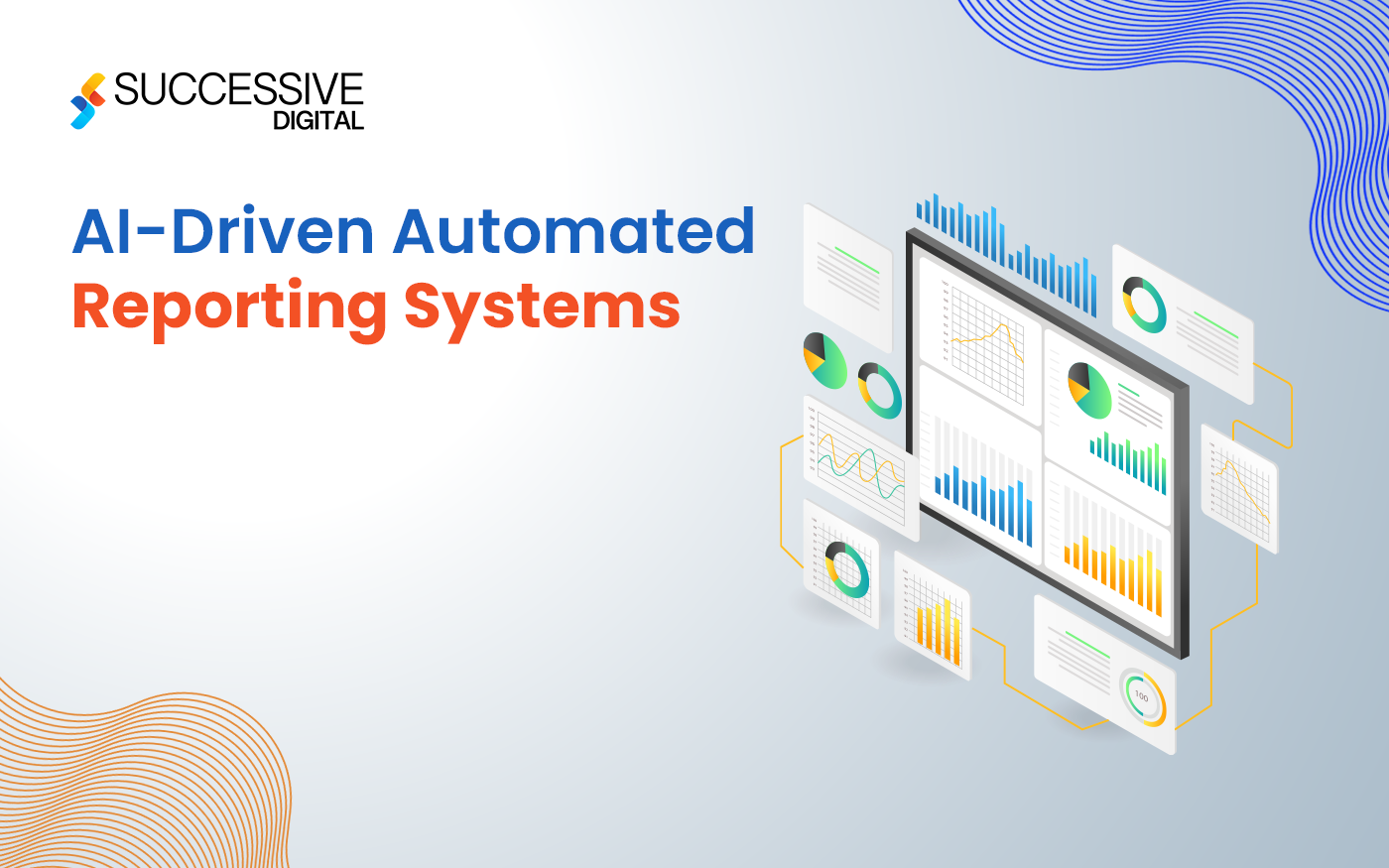What if your business could use AI to design products faster, write reports by itself, generate marketing content in a few seconds, or handle customer questions 24/7? That is no longer the future. It is already happening.
McKinsey states that generative AI may add up to $4.4 trillion of annual value to the global economy. Gartner forecasts that by 2026, over 80% of enterprises will have employed some form of GenAI APIs or implemented generative AI-powered applications. However, more than 60% of these initiatives fail to reach the level of their intended scale due to reasons such as inadequate planning, data problems, or the shortage of skilled personnel.
Generative AI consulting is a solution that supports companies in transitioning from the concept to the actual business impact.
If you are a decision-maker or a CXO, this guide will give you a clearer understanding of generative AI consulting, the ways it can benefit your business, the experience with consultants, and the insights you should have in 2025.
Why Generative AI Consulting Is Still Relevant in 2025
Gen AI (Generative AI) is not just about chatbots or simply creating content any more. It is having a profound impact on various industries, such as finance, healthcare, logistics, and retail, among others.
However, to actually deploy GenAI is not a matter of “plug and play” at all. It consists of:
- Dealing with intricate data infrastructures
- Selecting appropriate AI models
- Facing ethical and legal issues
- Preparing employees to use AI tools
You do not need to worry about all this if you have a consulting partner working alongside you.
In 2025, firms are no longer wondering “What is AI?” Instead, they are pondering “How can we expand AI in a safe and profitable way?”.
This is the very position where a seasoned GenAI consulting partner turns out to be your leader.
Also read: How to Ensure Data Security & Privacy in Gen AI Deployments
What Does a Generative AI Consultant Actually Do?
A Generative AI consulting firm guides enterprises through the process of planning, building, and scaling AI systems that are customized to their requirements.
This is how a competent consulting team typically works for your company:
1. Assess Business Readiness
Initially, they scrutinize your data, business objectives, and current tech stack to figure out where GenAI could have a significant impact. For instance, it might be the automation of customer service, the personalization of sales conversations, or the enhancement of software development productivity.
2. Design a Strategy
Consultants assist you in prioritizing the use of cases based on return on investment and ease of implementation. AI does not have to be involved in every single process and the right strategy is a way to circumvent losing money unnecessarily.
3. Build Proof of Concepts
They create small pilot projects to experiment with the technology. These pilots demonstrate what can be achieved before you extend them to other departments.
4. Implement Securely
Consultants facilitate the integration of AI models with your infrastructure while ensuring that data privacy, security, and ethical guidelines are adhered to.
5. Train Your Teams
Individuals have to trust and comprehend AI. A powerful consultant offers training and change management services so that employees can use the new tools with confidence.
6. Measure Impact
Eventually, they evaluate return on investment, performance, and business results, not just the precision of models.
Why Enterprises Struggle Without the Right Help
It’s a common mistake for numerous organizations to rush into GenAI without a clear strategy. Such actions result in:
- Data chaos: Data that is dirty, unstructured, and incomprehensible for AI
- Security risks: Models trained on sensitive or proprietary information
- Delusions of grandeur: By just assuming AI will be able to deliver miracles overnight
- Low adoption: Employees who resist the usage of tools they don’t trust or understand
Most of the AI initiatives fail to deliver the expected results because they are poorly executed and the goals are not clearly defined.
The takeaway? The tech is super-powerful but heaps of organization, governance, and a roadmap are still necessary.
Also read: Benefits of Gen AI Consulting & Integration in EdTech Companies?
What a GenAI Consulting Partner Should Deliver
Working with a generative AI consulting firm is more than just receiving technical assistance, it’s about having a partner that can help your organization innovate effectively and strategically with AI. A proper partner makes sure that AI fits your company’s objectives, works smoothly with your current setup, and results in tangible benefits without adding extra burdens to your teams.
1. AI Strategy and Use Case Selection
An excellent consulting partner would first know your business before even thinking of your technology stack. They dive into operations, discover pain points, and evaluate where AI can bring the highest value. Their job is to sort the use cases by factors such as return on investment, effort, and readiness, thus making it possible to have a quick win. Besides, they develop a plan which shows not only the projects to be done at the beginning and which to be scaled, but also how the long-term growth is to be staged. With such a firm strategy in place, AI ceases to be just a vague idea of a business concept, but rather a real and tangible one.
2. Data and Architecture
As generative AI is very data-intensive, the first priority to data consultants is to build the proper foundation. They start by evaluating data quality and coverage, then prepare data for AI use by cleaning and organizing it. They are also involved in designing the infrastructure that determines the flow of data from your different sources to the AI applications. The process includes the facilitation of the existing technologies such as CRMs, ERPs, and analytics platforms, as well as taking care of security and regulatory matters. By the end of this stage, your data will be a ready-to-use basis for accurate, trustworthy, and secure AI-generated results.
3. Engineering and Implementation
After the strategy and data have been established, consultants proceed to constructing and executing AI solutions. In order to make the outputs relevant and accurate, they choose or adjust models that are appropriate for your business. By integration with your systems, AI does not remain a separate experiment but becomes a part of daily workflows. Moreover, they fine-tune performance, arrange monitoring pipelines, and make sure that the system is scalable and moderately priced. This stage is the one that turns the plan into a working AI solution that your teams can use without any doubt.
4. Governance and Compliance
AI governance is a must in the regulated world we live in. Consultants assist in outlining well-defined policies which govern the responsible use of AI and include aspects such as data privacy, transparency, and ethical practices. They set up bias and fairness tests, explainable AI frameworks, and audit readiness routines. It is a safety net for your company to be able to apply AI, keep up with regulation changes, and at the same time, gain the confidence of both stakeholders and customers.
5. Change Management and Workforce Enablement
New technology will never be successful if people do not accept it. Consultants through training, workshops, and hands-on sessions enable employees to comprehend and implement AI. They facilitate role reshaping so that staff can use AI as a tool not as a job displacer. Besides, they also find and support the internal champions who will lead the adoption and assist the communication strategy, which will align leadership and staff regarding the advantages and security in the use of AI. In this way, your employees will be ready and they will have the confidence that they can use AI every day.
6. Performance Tracking and Continuous Improvement
To begin with, consultants develop ways of measuring and tracking the impact of AI that leads to continuous improvement.
They help establish key performance indicators, oversee system performance, interview users, and if needed, retrain models. They also keep a tab on expenses so that projects remain cost-effective and are always ready with a report to show the value of the business. This constant relationship guarantees the continuation of your AI strategies and the ability to grow with your enterprise needs.
Emerging Trends in Generative AI Consulting for 2025
GenAI is changing rapidly, and so are the related consulting services. The following are the main trends in the field:
1. AI Agents in the Enterprise
Gartner predicts that by 2027, AI agents will autonomously handle 30% of enterprise workflows. Some consultants are already helping companies to create and implement these “digital coworkers”.
2. Multi-Model Strategies
There is a practice of a single AI model no longer existing in the minds of companies. Consultants are rolling out hybrid solutions that merge open-source models, APIs, and privately fine-tuned models for improved results and control over costs.
3. On-Premise and Private AI
If data privacy is a concern for you, then you would be glad to know that many enterprises have decided to move from cloud-based GenAI to private or hybrid setups. LLM environments that are secure and internal are the ones consulting firms are helping you to establish.
4. Focus on Responsible AI
After episodes in which biased or inaccurate outputs were generated, organizations require transparency. In 2025, almost every consulting project will have explainability and ethical AI audits as a part of their delivery, along with the other components.
5. Integration with Enterprise Platforms
GenAI is becoming one of the main features of ERP, CRM, and analytics instruments. Consulting partners today are more concerned with the direct integration of AI into daily work routines rather than the mere creation of separate apps.
Final Thoughts
Generative AI is drastically changing how businesses operate. 2025 will see a move from mere experiments to the idea of responsible and strategic scaling.
The question leaders face is not “Should we use AI?”
Instead, it is “Who can help us use it properly?”
The right Generative AI consulting firm is more than just a source of technical knowledge. It is about having a partner who is an expert in your industry, understands your data, and knows your people.
With proper support, GenAI will not only be a buzzword, it will become the most powerful growth engine of your enterprise. To know more about Generative AI, connect with us.












